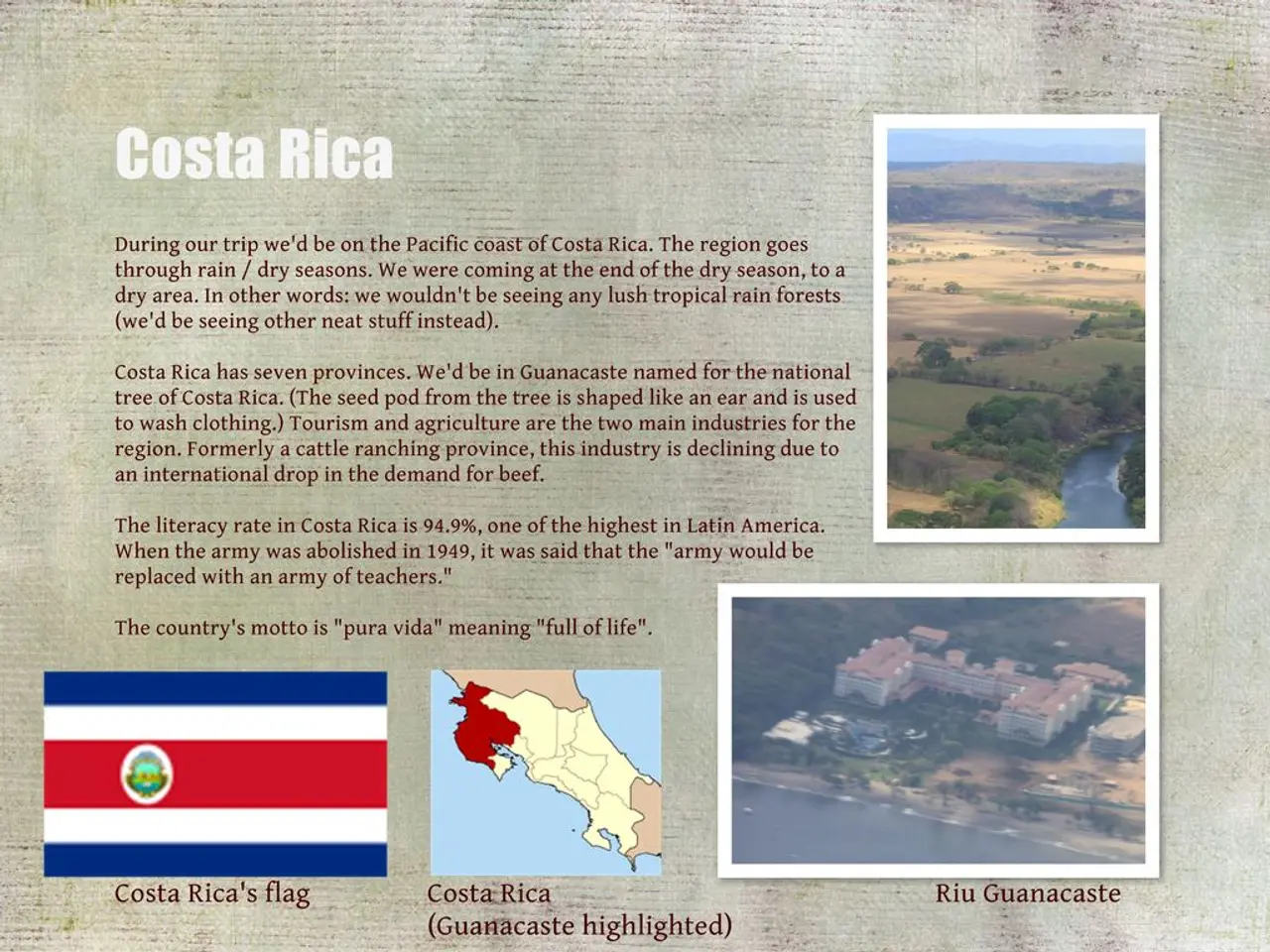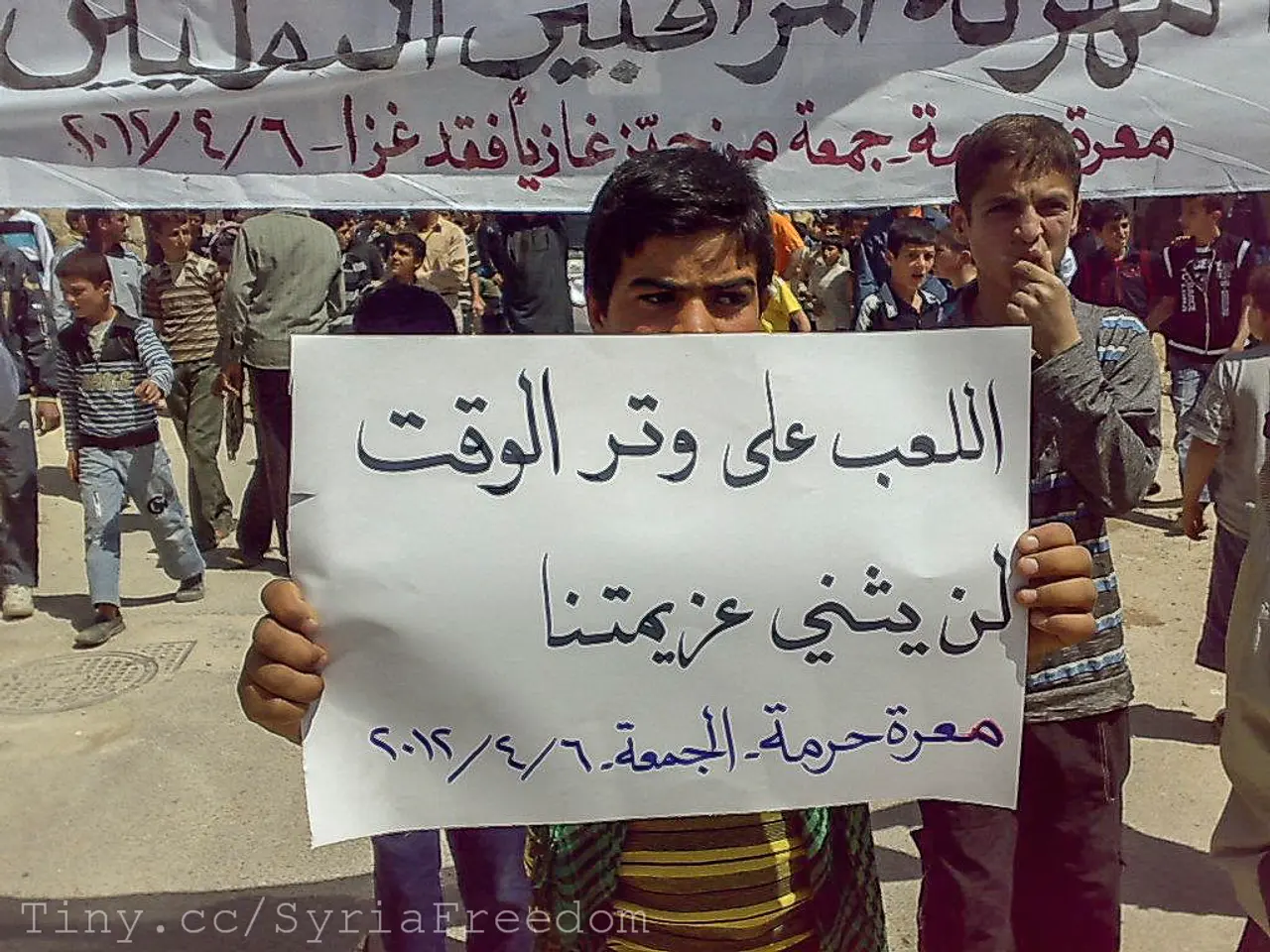"Statehood in Palestinian Territories: Guidelines and Critical Factors"
International law recognises four core criteria for statehood: a permanent population, a defined territory, an effective government, and the capacity to enter into relations with other states. These criteria, outlined in the Montevideo Convention of 1933, establish the basic conditions for statehood [1][2][3]. However, recognition by other states is a political act that confers legitimacy and practical international relations status.
The states of Palestine, Kosovo, and Western Sahara are examples of entities with extensive recognition but not full UN membership. These states meet the factual criteria for statehood, yet they have not been granted full membership due to political and diplomatic complexities.
Permanent Population and Defined Territory
Each of these states has a permanent population and a defined territory. While minor boundary disputes may exist, they do not necessarily prevent statehood [1][3]. Palestine, Kosovo, and Western Sahara all have clear territorial areas under their control, and they each have people who reside permanently.
Effective Government and International Relations Capacity
These states also have effective governments and the capacity to enter into relations with other states. Palestine, for instance, is able to access the majority of UN meetings and documentation and maintains missions at UN headquarters as a permanent observer [4]. Kosovo and Western Sahara have also established governments and have been recognised by numerous other states.
The Role of Recognition
Recognition is crucial for a state to function, to exist internationally, to enter into international agreements, to benefit from international treaties, and to avoid annexation, occupations, and other forms of arbitrary intervention from abroad [5]. While these criteria set the factual basis for statehood, recognition itself does not create statehood if the factual criteria are not met [1][3].
The UN and State Recognition
UN membership is not required to be a state, but it effectively acts as de facto recognition, providing sovereign integrity in the event of derecognition by one or more states, and a basis for equality irrespective of size and strength [6]. Becoming a UN member state requires a candidate state to follow several steps, including a letter to the UN secretary-general, a formal declaration accepting the UN Charter's membership obligations, the support of the secretary-general, and the support of members of the UN Security Council [4].
The Future of Palestine, Kosovo, and Western Sahara
The Montevideo Convention, signed in 1933, lists these four criteria for statehood. Outside of the 193 member states are two current permanent observers to the United Nations: the Holy See and Palestine [7]. The future of Palestine, Kosovo, and Western Sahara remains uncertain, with political and diplomatic complexities hindering their progress towards full UN membership.
Sources
- en.idi.org.il/articles/60319
- www.britannica.com/topic/international-law/States-in-international-law
- www.studeersnel.nl/nl/document/maastricht-university/public-international-law/subjects-of-international-law-states/6545657
- www.un.org/about/structure/who-we-are
- www.britannica.com/topic/international-law/States-in-international-law/The-right-to-recognize
- www.un.org/en/events/decadeforpeople/2005-2014/background.shtml
- www.un.org/en/members/permanent-observer-missions
- The States of Palestine, Kosovo, and Western Sahara, which have effective governments and the capacity to enter into international relations, seek full UN membership despite political and diplomatic complexities, owing to the role of recognition in their ability to function internationally, enter into international agreements, and avoid foreign intervention.
- Palestine, as an example, has access to the majority of UN meetings and documentation, maintaining a permanent observer status at UN headquarters, yet its future progress towards full UN membership remains uncertain due to profound political and diplomatic complexities.
- International recognition, although not required, effectively acts as de facto acknowledgment for a state, conferring sovereign integrity and a basis for equality, regardless of a state's size or strength. In the case of Palestine, Kosovo, and Western Sahara, their extensive recognition bolsters their claim to statehood despite not achieving full UN membership.








